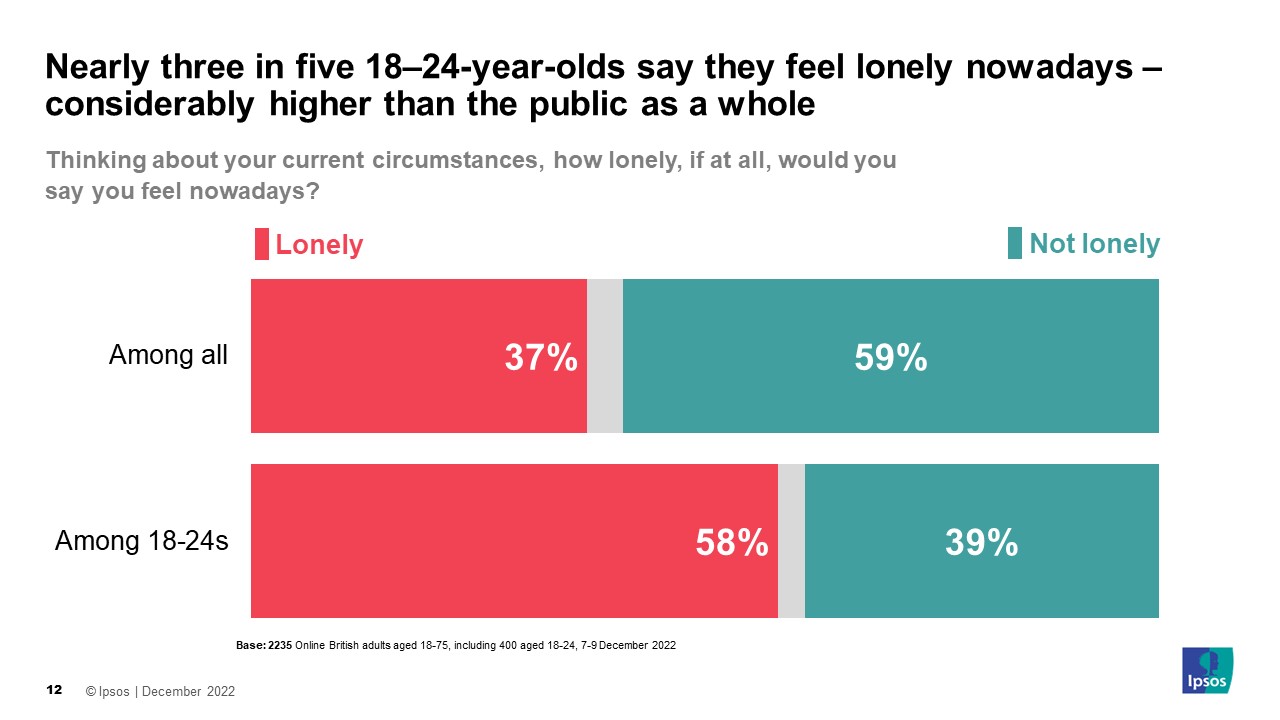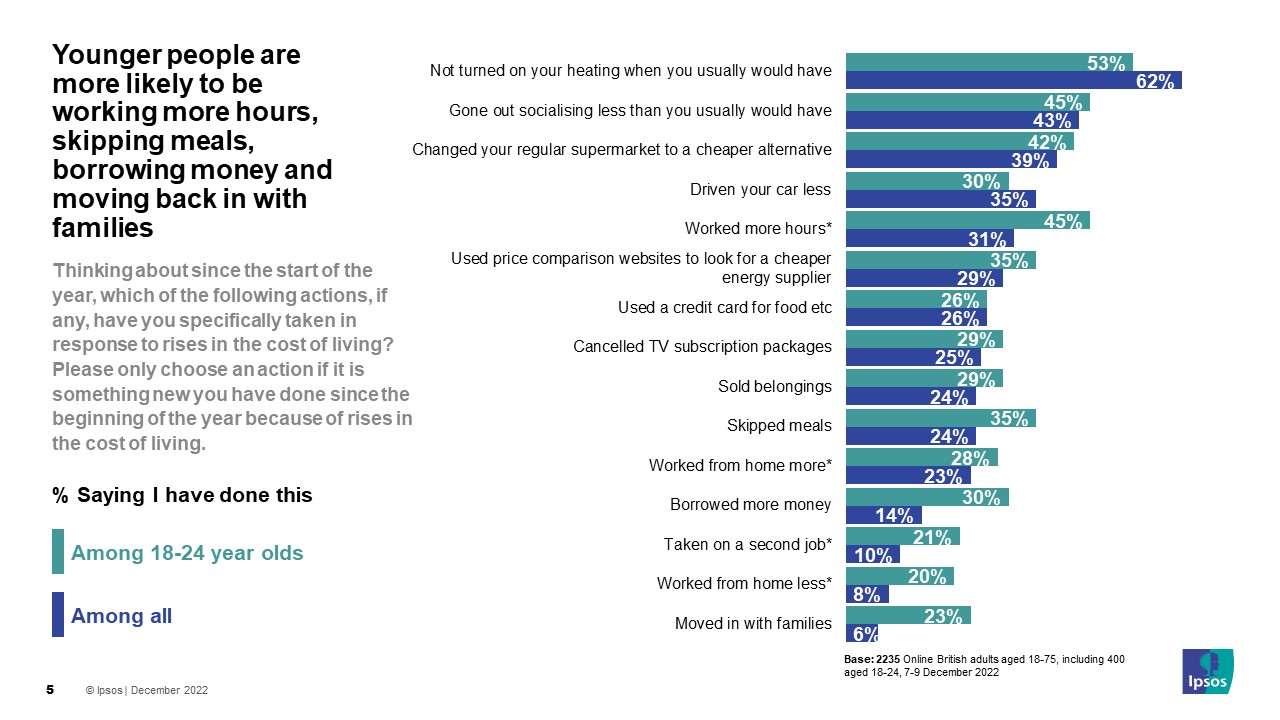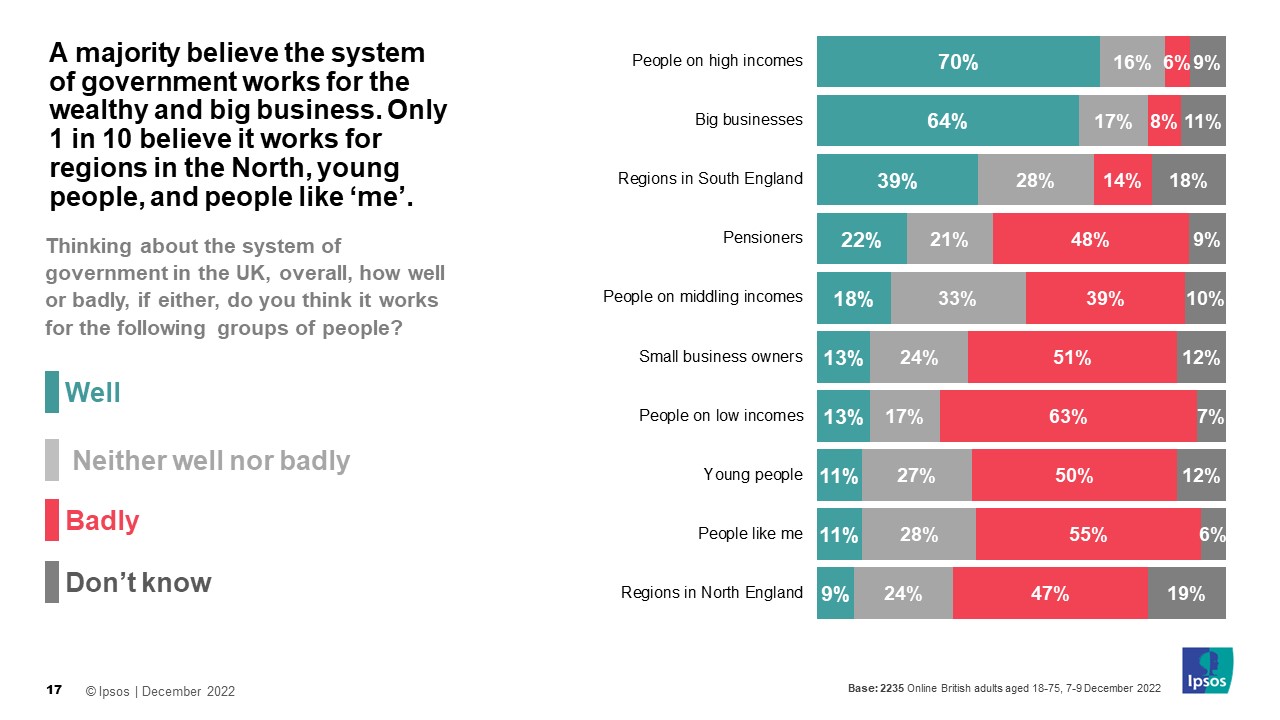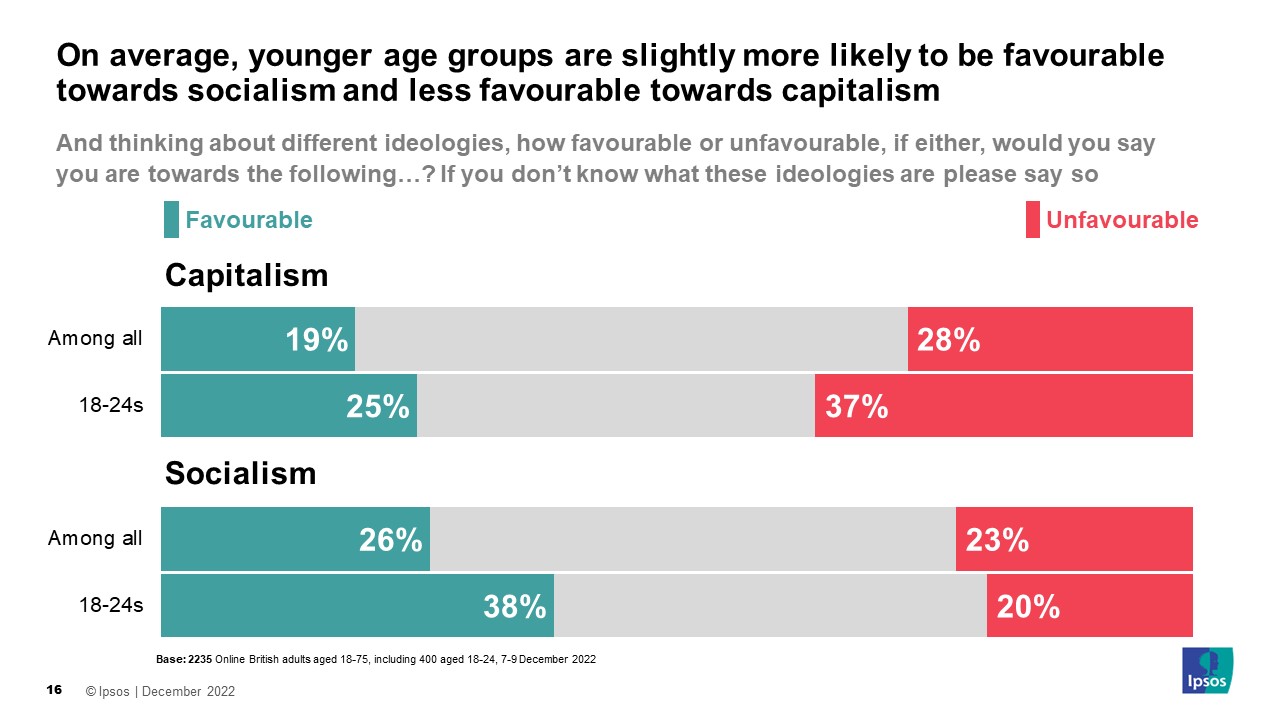More than one in three Britons feel lonely – rising to more than half of those aged 18-24
- The burden of the rising cost of living continues to be felt by Britons, with one in three struggling to pay energy bills in the three months prior to the survey.
- Younger Britons more likely than others to be working longer hours, taking on more debt or moving in with families.
New research by Ipsos, in partnership with Sky News, shows more than one in three Britons feeling lonely, including almost 6 in 10 aged 18-24. The research highlights the burden that many Britons continue to feel due to the cost of living, with many struggling to make ends meet. Meanwhile, whilst a majority of Britons feel the country works well for big business and those on high incomes, less than half think it works well for other groups.
Loneliness and free time
Ipsos interviewed 2,235 British adults aged 18-75 online between December 7-9, 2022; including 400 Britons aged 18-24. The research showed that 37% said they felt very or fairly lonely nowadays, with 59% saying they felt not very lonely or not lonely at all. The proportion of Britons feeling lonely increases to 58% among those aged 18-24.

When asked how this had changed over time, 1 in 4 Britons (25%) said they felt more lonely than a year ago, 9% said they felt less lonely but most (63%) said there had been no change. However, among the 18-24 age cohort, 37% said they felt more lonely and 20% said they felt less lonely (perhaps reflecting the variety of life stages of respondents within this group).
When asked how much free time they have on an average week, around half of Britons either say they have more than they need (19%) or less (30%) with little difference observed among the 18-24 cohort. Overall, one in four Britons (24%) say they have less free time than a year ago, rising to 36% among 18-24s (although this group are also more likely than average to say they have more free time as well – 27% to 15%).
Cost of living
The research shows the continued burden Britons feel due to the cost of living. One in three (33%) say they have found it difficult to afford paying their energy bills in the three months before the survey (a figure largely unchanged when we asked the same question in October and August last year). Around one in four (27%) say they have found it easy with 37% saying it has been neither easy nor difficult. Those with children and those in the 25-34 age bracket (both 44%) and those in households earning less than £20,000 a year (41%) are some of the most likely groups to have found things difficult. Meanwhile, 30% of those paying housing costs (rent or mortgage payments) say they have increased in the past three months.
Research findings also show the unique impact the rising cost of living has had on young people. Those aged 18-24 are more likely than the overall population to say they have worked more hours (45% of 18-24s in work versus 31% overall), skipped meals (35% versus 24%), borrowed more money (30% versus 14%) or had to move back in with families (23% versus 6%) in response to the crisis. 45% of 18-24s say they have socialised less – though this is similar to the 43% that say this overall – and more than half (53%) say they have not turned their heating on when they usually would have (though this is more common in the wider population (62%).

Who does the system work for?
When asked about the system more generally, clear majorities say the system of government in the UK works well for people on high incomes (70%) and big business (64%). However, less than half say it works well for all other groups with clear majorities saying it specifically works badly for ‘people like me’ (55%) and people on low incomes (63%). Just one in ten think the system works well for young people, with half saying it works badly, with similar findings observed when the public is asked about small business owners or regions in the north of England.

When asked to compare capitalism and socialism, at least half cannot form a view either way. 19% have a favourable opinion of Capitalism and 28% are unfavourable with the rest neutral or saying they don’t know or haven’t heard of the ideology. 26% are favourable towards socialism and 23% unfavourable. Those aged 18-24 are more positive about capitalism overall (25% favourable) but also more negative (37%) unfavourable. However, when it comes to socialism, they are more positive still (38% favourable) but are no more negative than the overall population (20% versus 23%).

Keiran Pedley, Director of Political Research at Ipsos, said:
These findings show that the cost of living continues to be a burden for Britons, with many still struggling to pay their bills. Whilst young Britons are not the only group affected, there does appear to be a unique nature to how they are experiencing the rising cost of living. A majority feel lonely and many are working longer hours or socialising less, with some having to move in with family members or skip meals to make ends meet. Overall, it is not surprising therefore that many Britons do not see the system of government in the UK working well for anyone other than big business or people on high incomes.
Technical note:
- Ipsos interviewed a representative quota sample of 2,235 adults aged 18-75 in Great Britain. Interviews took place on the online Omnibus 7th – 9th December 2022. This sample boosted responses among the 18-24 cohort meaning that n=400 of that age group were interviewed in total. Data has been weighted to the known offline population proportions. All polls are subject to a wide range of potential sources of error




